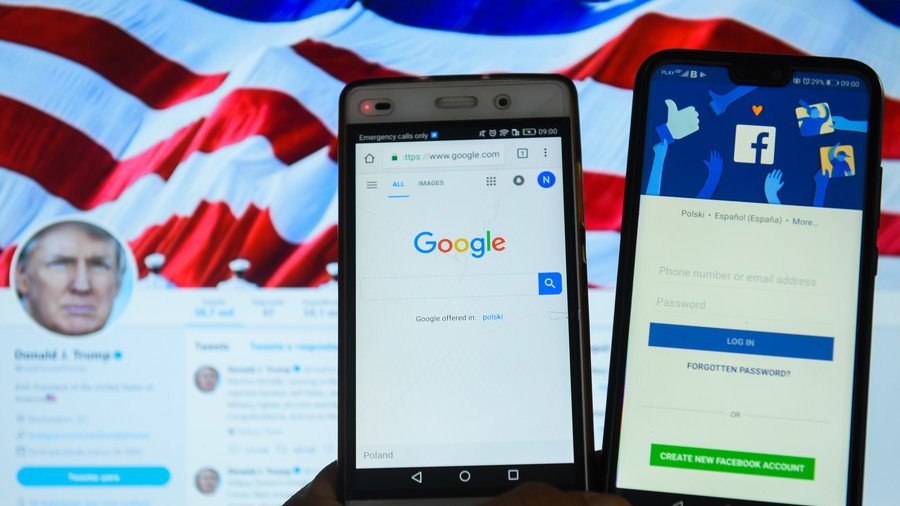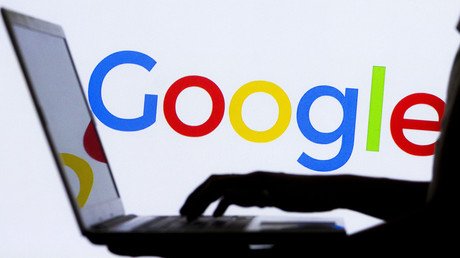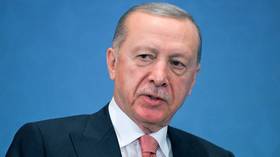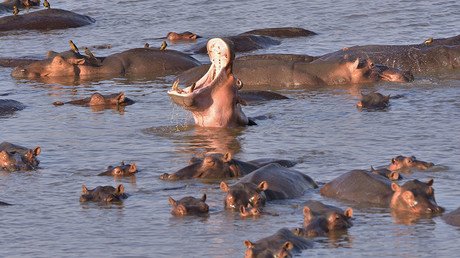Trump weighing antitrust probe into Google, Facebook & Twitter. It’s been a long time coming.

The White House is considering an executive order targeting Google and social media companies like Facebook and Twitter for antitrust activity, following months of criticism and accusations of bias from President Donald Trump.
The draft order would potentially pave the way for probes into Alphabet Inc.-owned Google, as well as social media companies that have been the focus of Trump’s ire over what he has described as a bias in favor of Democrats and against him personally.
Bloomberg reported on the order’s existence over the weekend, claiming to have seen a draft copy. The White House has since distanced itself from the executive order, with one official saying it was in its early stages and was not the result of any official policy-making process. The draft was emailed to the White House by Luther Lowe, a senior executive at Yelp — which has claimed for years that Google deliberately buries its reviews. Lowe denied writing the document, however.
White House equivocations aside, this kind of action would certainly come as no surprise from the Trump administration. Just last month, Trump told reporters, during an oval office meeting, that Google, Facebook, and Twitter were “treading on very, very troubled territory” and that they “better be careful” going forward. While he didn’t spell out any specific actions he might take, some speculated about potential antitrust action.
It was far from the first time Trump had complained about the companies in question, either.
1. Rigged results?
On the same day that Trump told reporters that Google and the social media networks should be "careful," he took to Twitter to claim that Google had “rigged” its search algorithms against him by only showing negative news from mainstream outlets. He also promised to address the problem without going into any details.
....results on “Trump News” are from National Left-Wing Media, very dangerous. Google & others are suppressing voices of Conservatives and hiding information and news that is good. They are controlling what we can & cannot see. This is a very serious situation-will be addressed!
— Donald J. Trump (@realDonaldTrump) August 28, 2018
2. Facebook on ‘Hillary’s side’
Facebook has also been a target of criticism from Trump since his election. He has speculated on Twitter about “collusion” between the social media giant, mainstream TV networks and the “fake news” New York Times and Washington Post which he claims were all “anti-Trump” during the campaign. Last October, he lashed out at Facebook again, saying that it supported Hillary Clinton.
Crooked Hillary Clinton spent hundreds of millions of dollars more on Presidential Election than I did. Facebook was on her side, not mine!
— Donald J. Trump (@realDonaldTrump) October 21, 2017
Though Trump did not specifically refer to them, leaked emails between Facebook Chief Operating Officer Sheryl Sandberg and Clinton campaign chairman John Podesta in the run-up to the 2016 election revealed that Facebook provided research to Clinton in 2015, and that Sandberg met with Clinton privately multiple times and“badly” wanted her to win the election.
3. Twitter ‘shadowbanning’ conservatives
More recently, Trump has taken aim at Twitter over accusations from some prominent pundits and even lawmakers that the platform has been “shadowbanning” conservatives — a practice which involves making their tweets less prominent on user feeds and their profiles harder to find. Trump didn’t pull any punches in his criticism of Twitter, calling the practice “illegal” and discriminatory.
Twitter “SHADOW BANNING” prominent Republicans. Not good. We will look into this discriminatory and illegal practice at once! Many complaints.
— Donald J. Trump (@realDonaldTrump) July 26, 2018
Twitter has denied that it engages in any kind of purposeful censorship of conservatives, but an undercover video recording by conservative watchdog group Project Veritas showed Twitter employees confirming that it is commonplace at the company and gives the platform "ultimate control”.
We caught a Twitter software engineer RED HANDED when he admitted that Twitter #ShadowBans to our undercover journalist. Twitter will never admit it: "it's a lot of bad press if, like, people figure out that you're like shadow banning them. It's like, unethical in some way." pic.twitter.com/MmBGKohWLj
— James O'Keefe (@JamesOKeefeIII) July 26, 2018
The draft order does not name any company specifically, but instructs antitrust authorities to “thoroughly investigate whether any online platform has acted in violation” of antitrust laws and states that consumer harm could come through “the exercise of bias” — something which is not typically a feature of antitrust investigations and which could be interpreted as an attempt by the government to regulate political views, Bloomberg reported.
Former Justice Department antitrust lawyer Gene Kimmelman told Bloomberg that such a directive from the White House could be “extremely dangerous” if it “incorrectly associates bias with competition.” However, Hal Singer, a senior fellow at the George Washington Institute of Public Policy, had a different interpretation of the draft. Singer said that the word “bias” in the order did not necessarily mean political bias. Instead, Singer posited that it referred to widespread accusations that companies like Facebook have used their power to point people toward their own products and services.
READ MORE: ‘It can turn around’: Trump would rather tolerate ‘fake news’ than accept ‘censorship’
“Tell me where in the executive order you can locate a kernel of the political speech idea," he said. “This is purely about competition.”
If you like this story, share it with a friend!
















